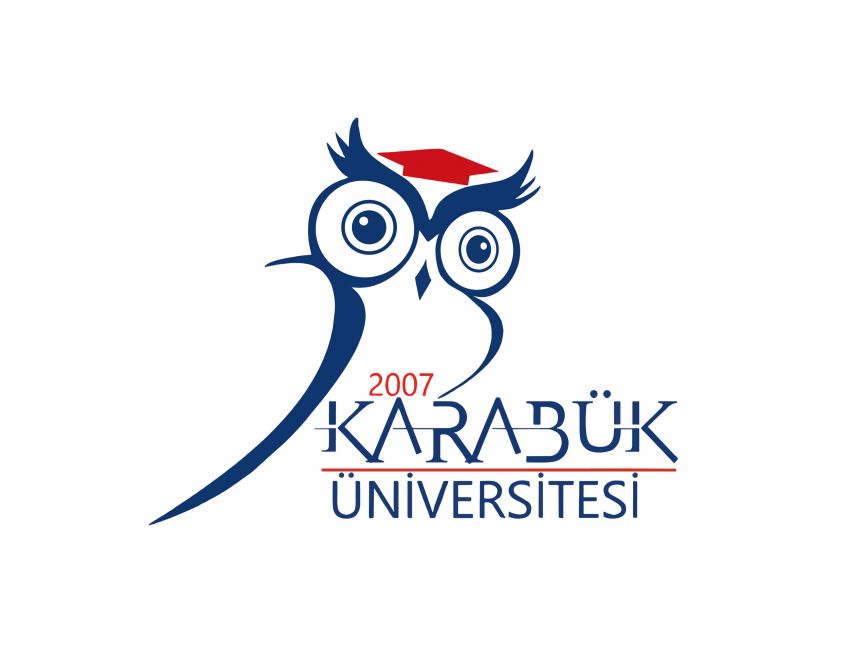Ethical Values (Interdisciplinary)
Overview
<!-- wp:paragraph --> <p><strong>Ethical Values (Interdisciplinary) at Karabük University: Navigating Moral Complexities in the Modern World</strong></p> <!-- /wp:paragraph --> <!-- wp:paragraph --> <p>The <strong>Ethical Values (Interdisciplinary)</strong> program at Karabük University offers an in-depth exploration of ethics and moral philosophy from multiple perspectives. This interdisciplinary program brings together knowledge from philosophy, social sciences, law, and various professional fields to help students critically engage with the ethical dilemmas of today’s complex world. The program is designed to equip students with the analytical tools and ethical reasoning skills necessary to navigate personal, societal, and professional challenges with integrity and responsibility.</p> <!-- /wp:paragraph --> <!-- wp:heading {"level":3} --> <h3 class="wp-block-heading">Program Mission and Vision</h3> <!-- /wp:heading --> <!-- wp:paragraph --> <p>The mission of the <strong>Ethical Values (Interdisciplinary)</strong> program is to cultivate individuals who possess a profound understanding of ethical principles and can apply them thoughtfully across diverse contexts. The program’s vision is to produce graduates who will serve as ethical leaders in their respective fields, contributing to the betterment of society by fostering moral awareness, empathy, and a commitment to justice.</p> <!-- /wp:paragraph --> <!-- wp:heading {"level":3} --> <h3 class="wp-block-heading">Curriculum Overview</h3> <!-- /wp:heading --> <!-- wp:paragraph --> <p>The <strong>Ethical Values (Interdisciplinary)</strong> program provides a comprehensive curriculum that integrates philosophy, law, sociology, psychology, and other disciplines to give students a well-rounded understanding of ethical issues. The program emphasizes both theoretical foundations and real-world applications, enabling students to critically analyze moral dilemmas and propose solutions grounded in ethical reasoning.</p> <!-- /wp:paragraph --> <!-- wp:heading {"level":3} --> <h3 class="wp-block-heading">Core Foundations</h3> <!-- /wp:heading --> <!-- wp:paragraph --> <p><strong>Introduction to Ethics</strong>: Study the fundamental concepts of ethics, including moral theories, the nature of right and wrong, and the role of ethical values in shaping human behavior and society.</p> <!-- /wp:paragraph --> <!-- wp:paragraph --> <p><strong>Philosophical Ethics</strong>: Explore key philosophical approaches to ethics, such as utilitarianism, deontology, virtue ethics, and care ethics, and examine their applications in various contexts.</p> <!-- /wp:paragraph --> <!-- wp:paragraph --> <p><strong>Ethical Theories and Frameworks</strong>: Learn about the different ethical frameworks used to analyze complex moral issues, including deontological, consequentialist, and relativist approaches to ethics.</p> <!-- /wp:paragraph --> <!-- wp:paragraph --> <p><strong>Social Ethics and Justice</strong>: Investigate the ethical dimensions of social issues such as poverty, inequality, discrimination, and human rights, and analyze the role of ethics in promoting social justice and equity.</p> <!-- /wp:paragraph --> <!-- wp:paragraph --> <p><strong>Professional Ethics</strong>: Study the ethical standards and codes of conduct specific to various professions, such as medicine, law, business, engineering, and education, and examine the ethical dilemmas faced by professionals in these fields.</p> <!-- /wp:paragraph --> <!-- wp:paragraph --> <p><strong>Bioethics</strong>: Explore the ethical issues surrounding healthcare, medical advancements, biotechnology, and human rights, with a particular focus on patient autonomy, consent, and the ethical implications of emerging technologies.</p> <!-- /wp:paragraph --> <!-- wp:paragraph --> <p><strong>Environmental Ethics</strong>: Examine the ethical responsibilities humans have towards the environment, addressing issues such as sustainability, conservation, climate change, and the ethics of resource use and environmental stewardship.</p> <!-- /wp:paragraph --> <!-- wp:paragraph --> <p><strong>Ethics and Technology</strong>: Study the moral challenges posed by technological advancements, including artificial intelligence, biotechnology, and data privacy, and how these technologies intersect with ethical values.</p> <!-- /wp:paragraph --> <!-- wp:paragraph --> <p><strong>Law and Ethics</strong>: Understand the relationship between law and ethics, exploring how legal systems address moral questions and how ethical principles influence legal practices and policies.</p> <!-- /wp:paragraph --> <!-- wp:paragraph --> <p><strong>Ethical Decision-Making</strong>: Learn how to make ethical decisions in personal and professional life, emphasizing the importance of integrity, responsibility, and accountability in ethical reasoning.</p> <!-- /wp:paragraph --> <!-- wp:paragraph --> <p><strong>Conflict Resolution and Ethics</strong>: Investigate ethical approaches to resolving conflicts, including negotiation, mediation, and peacebuilding, and the role of ethics in promoting reconciliation and understanding.</p> <!-- /wp:paragraph --> <!-- wp:heading {"level":3} --> <h3 class="wp-block-heading">Specialized Topics in Ethical Values</h3> <!-- /wp:heading --> <!-- wp:paragraph --> <p><strong>Global Ethics</strong>: Explore ethical issues that transcend national borders, including global justice, humanitarian rights, global health ethics, and the ethical responsibilities of individuals and organizations in the global community.</p> <!-- /wp:paragraph --> <!-- wp:paragraph --> <p><strong>Ethics in Business and Economics</strong>: Study the ethical implications of business practices, corporate social responsibility, financial systems, and economic policies, with an emphasis on ethical leadership in the corporate world.</p> <!-- /wp:paragraph --> <!-- wp:paragraph --> <p><strong>Cultural Ethics</strong>: Examine the role of culture in shaping ethical beliefs and practices, including the ethics of cultural diversity, cultural relativism, and the challenges of maintaining ethical standards in multicultural societies.</p> <!-- /wp:paragraph --> <!-- wp:paragraph --> <p><strong>Ethics in Politics and Governance</strong>: Investigate the ethical issues involved in political leadership, governance, public policy, and international relations, including questions of accountability, transparency, and justice.</p> <!-- /wp:paragraph --> <!-- wp:paragraph --> <p><strong>Ethics of Artificial Intelligence and Robotics</strong>: Explore the ethical challenges associated with the development and use of AI and robotics, focusing on autonomy, privacy, bias, and the ethical implications of machine decision-making.</p> <!-- /wp:paragraph --> <!-- wp:paragraph --> <p><strong>Ethical Implications of Scientific Research</strong>: Understand the ethical responsibilities of researchers in the scientific community, including issues of consent, integrity, and the social consequences of research findings.</p> <!-- /wp:paragraph --> <!-- wp:paragraph --> <p><strong>Religion and Ethics</strong>: Study the ethical teachings of major world religions and their impact on moral philosophy, decision-making, and the relationship between religion and ethics.</p> <!-- /wp:paragraph --> <!-- wp:paragraph --> <p><strong>Ethics of War and Peace</strong>: Examine the moral issues surrounding war, conflict, and peacebuilding, focusing on just war theory, humanitarian intervention, and the ethical dimensions of armed conflict.</p> <!-- /wp:paragraph --> <!-- wp:heading {"level":3} --> <h3 class="wp-block-heading">Practical Applications</h3> <!-- /wp:heading --> <!-- wp:paragraph --> <p><strong>Case Studies and Real-World Applications</strong>: Analyze real-life ethical dilemmas and case studies across various fields, such as business, medicine, law, and international relations, and apply ethical theories to propose solutions.</p> <!-- /wp:paragraph --> <!-- wp:paragraph --> <p><strong>Internships and Fieldwork</strong>: Gain hands-on experience by working with organizations, institutions, or advocacy groups that deal with ethical issues, applying theoretical knowledge to practical ethical challenges.</p> <!-- /wp:paragraph --> <!-- wp:paragraph --> <p><strong>Ethical Leadership Projects</strong>: Participate in projects that require ethical decision-making, leadership, and collaboration to address societal issues, from environmental sustainability to social justice.</p> <!-- /wp:paragraph --> <!-- wp:paragraph --> <p><strong>Ethics Debate and Discussion</strong>: Engage in debates and discussions with peers and faculty to critically evaluate ethical positions on contemporary issues, fostering intellectual growth and developing argumentative skills.</p> <!-- /wp:paragraph --> <!-- wp:heading {"level":3} --> <h3 class="wp-block-heading">Emerging Trends in Ethical Values</h3> <!-- /wp:heading --> <!-- wp:paragraph --> <p><strong>Ethics of Emerging Technologies</strong>: Study the evolving ethical challenges presented by new technologies such as artificial intelligence, genetic engineering, and nanotechnology, and the need for ethical frameworks to guide their development and application.</p> <!-- /wp:paragraph --> <!-- wp:paragraph --> <p><strong>Corporate Social Responsibility (CSR)</strong>: Investigate the growing emphasis on CSR and ethical business practices, exploring how companies can balance profit-making with social and environmental responsibility.</p> <!-- /wp:paragraph --> <!-- wp:paragraph --> <p><strong>Ethical Consumerism</strong>: Explore the rise of ethical consumerism, where consumers make purchasing decisions based on ethical considerations, such as environmental sustainability and fair trade practices.</p> <!-- /wp:paragraph --> <!-- wp:paragraph --> <p><strong>Neuroethics</strong>: Study the ethical implications of advances in neuroscience, including issues related to brain research, cognitive enhancement, and the ethical treatment of individuals with neurological conditions.</p> <!-- /wp:paragraph --> <!-- wp:paragraph --> <p><strong>Ethical Implications of Climate Change</strong>: Examine the ethical dimensions of climate change, including the responsibility of individuals, organizations, and governments to mitigate environmental damage and promote sustainability.</p> <!-- /wp:paragraph --> <!-- wp:heading {"level":3} --> <h3 class="wp-block-heading">Career Opportunities</h3> <!-- /wp:heading --> <!-- wp:paragraph --> <p>Graduates of the <strong>Ethical Values (Interdisciplinary)</strong> program are well-prepared for careers that require ethical expertise, such as:</p> <!-- /wp:paragraph --> <!-- wp:list --> <ul class="wp-block-list"><!-- wp:list-item --> <li><strong>Ethics Consultant</strong>: Provide guidance on ethical decision-making for organizations, businesses, and government bodies, ensuring adherence to ethical standards and practices.</li> <!-- /wp:list-item --> <!-- wp:list-item --> <li><strong>Corporate Social Responsibility Manager</strong>: Oversee CSR initiatives in companies, ensuring that business practices align with ethical and sustainable standards.</li> <!-- /wp:list-item --> <!-- wp:list-item --> <li><strong>Policy Advisor</strong>: Advise governmental or non-governmental organizations on ethical issues related to public policy, lawmaking, and social issues.</li> <!-- /wp:list-item --> <!-- wp:list-item --> <li><strong>Human Rights Advocate</strong>: Work with NGOs, international organizations, or advocacy groups to promote and protect human rights, often dealing with issues such as justice, equity, and fairness.</li> <!-- /wp:list-item --> <!-- wp:list-item --> <li><strong>Bioethicist</strong>: Work in healthcare or research institutions to address ethical concerns in medical practices, clinical research, and healthcare policy.</li> <!-- /wp:list-item --> <!-- wp:list-item --> <li><strong>Ethics Educator</strong>: Teach ethics and moral philosophy at various educational levels, from schools to universities, or provide professional development training on ethical issues.</li> <!-- /wp:list-item --> <!-- wp:list-item --> <li><strong>Environmental Ethics Specialist</strong>: Work with environmental organizations, policy think tanks, or governmental bodies to address the ethical dimensions of environmental protection and sustainability.</li> <!-- /wp:list-item --> <!-- wp:list-item --> <li><strong>Law and Ethics Advisor</strong>: Provide advice on legal and ethical matters, particularly in professions such as law, business, or healthcare.</li> <!-- /wp:list-item --></ul> <!-- /wp:list --> <!-- wp:heading {"level":3} --> <h3 class="wp-block-heading">Why Choose Karabük University?</h3> <!-- /wp:heading --> <!-- wp:list --> <ul class="wp-block-list"><!-- wp:list-item --> <li><strong>Interdisciplinary Approach</strong>: The <strong>Ethical Values (Interdisciplinary)</strong> program provides a broad, multidisciplinary education, drawing from various fields of study to give students a well-rounded understanding of ethical challenges.</li> <!-- /wp:list-item --> <!-- wp:list-item --> <li><strong>Experienced Faculty</strong>: Learn from professors with expertise in philosophy, law, sociology, and other relevant disciplines, ensuring a diverse and deep academic experience.</li> <!-- /wp:list-item --> <!-- wp:list-item --> <li><strong>Practical Learning</strong>: The program emphasizes case studies, internships, and hands-on projects, allowing students to apply their ethical reasoning in real-world contexts.</li> <!-- /wp:list-item --> <!-- wp:list-item --> <li><strong>Global Perspective</strong>: Engage with global ethical issues and examine how ethics intersect with international relations, human rights, and global governance.</li> <!-- /wp:list-item --></ul> <!-- /wp:list --> <!-- wp:heading {"level":3} --> <h3 class="wp-block-heading">Shaping Ethical Leaders for the Future</h3> <!-- /wp:heading --> <!-- wp:paragraph --> <p>Karabük University’s <strong>Ethical Values (Interdisciplinary)</strong> program is dedicated to developing the next generation of ethical leaders who will influence decision-making in diverse sectors, from business to healthcare to public policy. By offering a comprehensive, interdisciplinary education, the program prepares graduates to navigate the moral complexities of the modern world and contribute to a more ethical and just society.</p> <!-- /wp:paragraph -->
Program Description
The Ethical Values (Interdisciplinary) program at Karabuk University offers a comprehensive curriculum designed to prepare students for successful careers in this dynamic field. The program combines theoretical knowledge with practical skills, ensuring graduates are ready for the challenges of the industry.
The program is taught by experienced faculty members who are leaders in their respective fields, providing students with insights into current industry practices and future trends.
Curriculum Highlights
- Advanced Research Methods: Learn cutting-edge research techniques and methodologies.
- Industry Analysis: Explore current industry trends and develop analytical skills.
- Leadership and Management: Develop essential leadership skills for managing teams and projects.
- Innovation and Entrepreneurship: Cultivate creative thinking and entrepreneurial mindset.
- Digital Transformation: Understand how technology is reshaping industries and businesses.
- Sustainable Development: Explore environmentally sustainable practices and their implementation.
- Global Markets: Study international market dynamics and global business operations.
- Technology Integration: Learn to leverage technology for improved business outcomes.
Requirements:
- Bachelor's degree (for Master's programs) or equivalent qualifications.
- Proven English language proficiency (IELTS 6.5+ or equivalent).
- Complete transcripts from previous education.
- A compelling letter of motivation explaining your interest in the program.
- Two letters of recommendation from academic or professional references.
- Valid passport with appropriate visa status or eligibility.
Benefits:
- World-class faculty with extensive industry experience.
- Modern campus facilities and cutting-edge learning environments.
- Strong industry partnerships providing networking opportunities.
- Internship opportunities with leading companies in the field.
- Comprehensive career services including job placement assistance.
- Access to a global alumni network for lifelong professional connections.
Begin your educational journey today.
Apply now and take the first step towards your future.






